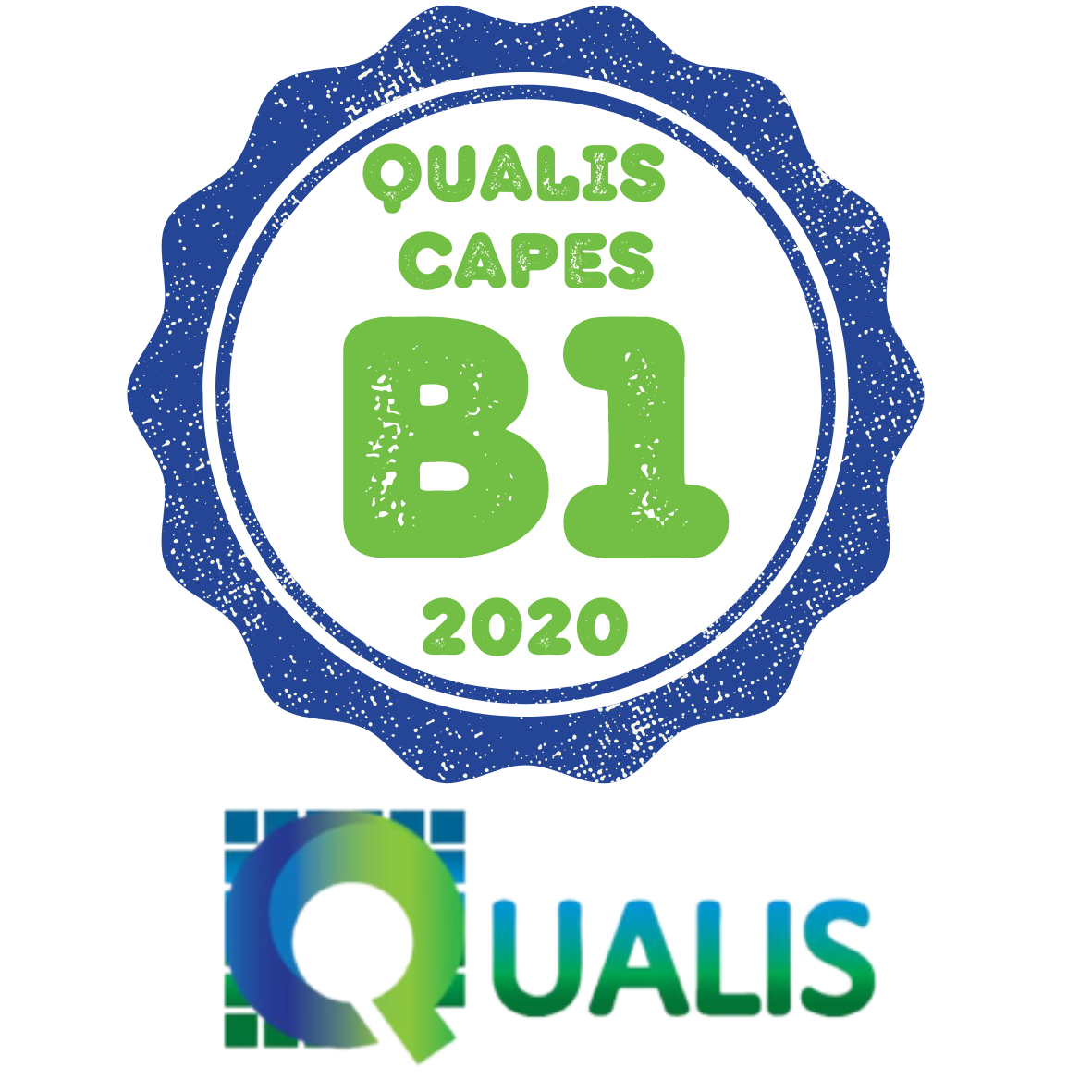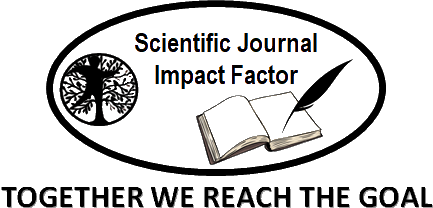QUALITY OF THE RELATIONSHIP WITH THE COACH AND RESILIENCE OF PARALYMPIC ATHLETES IN ATHLETICS AND SWIMMING
DOI:
https://doi.org/10.22289/2446-922X.V6N1A12Keywords:
Interpersonal Relations, Resilience, Paralympic SportAbstract
The present study aimed to investigate the quality of the relationship with the coach-athlete (CAR) and the resilience of 64 paralympic athletics and swimming athletes. Parathletes were participants in the North / Northeast Athletics Stage 2017. Among them, 41 were male and 23 female, with an average age of 28.42 ± 11.32 years. As instruments, the Coach-Athlete Relationship Questionnaire (CART-Q)- athlete version and the Connor-Davidson Resilience Scale (CD-RISC) were used. Data analysis was performed using the Kolmogorov-Smirnov, U Mann-Whitney tests and Spearman's correlation coefficient (p <0.05). The results showed a significant (p <0.05), positive and weak (r <0.40) correlation between the dimension of commitment to resilience (r = 0.35). It was concluded that gender, age and modality do not seem to be intervening factors in the quality of the RTA and in the resilience in Paralympic athletics and swimming athletes.
Downloads
References
Beckman, E. M., Newcombe, P., Vanlandewijck, Y., Connick, M. J., & Tweedy, S. M. (2014). Novel strength test battery to permit evidence-based paralympic classification. Medicine, 93(4).
Belem, I. C., Caruzzo, N. M., Nascimento Junior, J. R. A. d., Vieira, J. L. L., & Vieira, L. F. (2014). Impacto das estratégias de coping na resiliência de atletas de vôlei de praia de alto rendimento. Revista Brasileira de Cineantropometria & Desempenho Humano, 16(4), 447-455.
Campbell‐Sills, L., & Stein, M. B. (2007). Psychometric analysis and refinement of the connor–davidson resilience scale (CD‐RISC): Validation of a 10‐item measure of resilience. Journal of Traumatic Stress: Official Publication of The International Society for Traumatic Stress Studies, 20(6), 1019-1028.
Chan, D. K. C., Dimmock, J., Donovan, R., Hardcastle, S., Lentillon-Kaestner, V., & Hagger, M. S. (2015). Self-determined motivation in sport predicts anti-doping motivation and intention: A perspective from the trans-contextual model. Journal of Science and Medicine in Sport, 18(3), 315-322.
Cheuczuk, F., Ferreira, L., Flores, P. P., Vieira, L. F., Lopes Vieira, J. L., & do Nascimento Junior, J. R. A. (2016). Qualidade do Relacionamento Treinador-Atleta e Orientação às Metas como Preditores de Desempenho Esportivo. Psicologia: Teoria e Pesquisa, 32(2), 1-8.
Choi, H., Cho, S., & Huh, J. (2013). The association between the perceived coach–athlete relationship and athletes' basic psychological needs. Social Behavior and Personality: an international journal, 41(9), 1547-1556.
Codonhato, R., Vissoci, J. R. N., Nascimento Junior, J. R. A. d., Mizoguchi, M. V., & Fiorese, L. (2018). Impact of resilience on stress and recovery in athletes. Revista Brasileira de Medicina do Esporte, 24(5), 352-356.
Craig, A. (2012). Resilience in People with Physical. The Oxford handbook of rehabilitation psychology, 474.
Davis, L., Appleby, R., Davis, P., Wetherell, M., & Gustafsson, H. (2018). The role of coach-athlete relationship quality in team sport athletes’ psychophysiological exhaustion: implications for physical and cognitive performance. Journal of sports sciences, 36(17), 1985-1992.
do Nascimento Junior, J. R. A., Fiorese, L., Vieira, J. L. L., Ferreira, L., Cheuczuk, F., Jowett, S., . . . Vissoci, J. R. N. (2019). Coach-athlete relationship and collective efficacy in volleyball: is the association explained by athletes’ goal orientations? Motricidade, 15(2-3), 1-11.
Freire, G. L. M., Granja, C. T. L., Torres, V. M. F., Vasconcelos, G. C. d., & Morais, M. P. d. (2019). Percepção da qualidade de vida em atletas de atletismo e natação paralímpica. Cadernos Brasileiros de Terapia Ocupacional, 27(2), 384-389.
Freire, G. L. M., Torres, V. M. F., de Oliveira, D. V., & do Nascimento Junior, J. R. A. (2019). Comparação da qualidade de vida entre atletas e paratletas brasileiros de alto rendimento. Revista Brasileira de Ciência e Movimento, 27(3), 52-58.
Hair, J. F., Risher, J. J., Sarstedt, M., & Ringle, C. M. (2019). When to use and how to report the results of PLS-SEM. European Business Review, 31(1), 2-24.
Jowett, S., & Ntoumanis, N. (2004). The coach–athlete relationship questionnaire (CART‐Q): Development and initial validation. Scandinavian journal of medicine & science in sports, 14(4), 245-257.
Jowett, S., & Poczwardowski, A. (2007). Understanding the Coach-Athlete Relationship.
Leite, G. d. S., Amaral, D. P. d., Oliveira, R. S. d., Oliveira Filho, C. W. d., Mello, M. T. d., & Brandão, M. R. F. (2013). Relação entre estados de humor, variabilidade da frequência cardíaca e creatina quinase de para-atletas brasileiros. Revista da Educação Física/UEM, 24(1), 33-40.
Lopes, V. R., & Martins, M. d. C. F. (2011). Validação fatorial da escala de resiliência de Connor-Davidson (Cd-Risc-10) para brasileiros. Revista Psicologia: Organizações e Trabalho, 11(2), 36-50.
Mata, R., & Gomes, A. R. (2016). Relação treinador-atleta: Teoria, investigação e intervenção. Relações interpessoais: Concepções e contextos de intervenção e avaliação(1), 155-174.
Miranda, T. J. (2011). Comitê Paralímpico Brasileiro= 15 anos de história.
Moura, M. C. A. R., da Silva, T. N., de Assis, M. L. R., da Costa, L. C. A., Amorim, A. C., Fiorese, L., & Contreira, A. R. (2019). O relacionamento com o treinador pode afetar a motivação de atletas paranaenses de futsal? Saúde e Pesquisa, 12(1), 29-38.
Podlog, L., Heil, J., & Schulte, S. (2014). Psychosocial factors in sports injury rehabilitation and return to play. Physical Medicine and Rehabilitation Clinics, 25(4), 915-930.
Santos, F., Côrte-Real, N., Regueiras, L., Fonseca, A., & Dias, C. (2016). O papel do treinador no desenvolvimento positivo dos jovens através do desporto: Do que sabemos ao que precisamos saber. Revista Iberoamericana de Psicología del Ejercicio y el Deporte, 2(11), 289-296.
Sarkar, M. (2017). Psychological resilience: Definitional advancement and research developments in elite sport. IJSPW, 1, 1-4.
Sarkar, M., & Fletcher, D. (2014). Psychological resilience in sport performers: a review of stressors and protective factors. Journal of sports sciences, 32(15), 1419-1434.
Stephenson, B. T., Leicht, C. A., Tolfrey, K., & Goosey-Tolfrey, V. L. (2019). A Multifactorial Assessment of Elite Paratriathletes’ Response to 2 Weeks of Intensified Training. International journal of sports physiology and performance, 14(7), 911-917.
Vella, S. A., Oades, L. G., & Crowe, T. P. (2013). The relationship between coach leadership, the coach–athlete relationship, team success, and the positive developmental experiences of adolescent soccer players. Physical education and sport pedagogy, 18(5), 549-561.
Vieira, L. F., Nascimento Junior, J. R. A. d., Pujals, C., Jowett, S., Codonhato, R., & Vissoci, J. R. N. (2015). Cross-cultural adaptation and psychometric properties of the Brazilian coach-athlete relationship questionnaire (CART-Q)-Athlete Version. Revista Brasileira de Cineantropometria & Desempenho Humano, 17(6), 635-649.
Vieira, L. F., Pizzo, G. C., Contreira, A. R., Lazier-Leão, T. R., Moreira, C. R., Rigoni, P. A. G., & Nascimento Junior, J. R. A. d. (2018). Associação entre motivação e coesão de grupo no futebol profissional: o relacionamento treinador-atleta é um fator determinante? Revista de psicología del deporte, 27(4), 0051-0057.
Yang, S., & Jowett, S. (2012). Psychometric properties of the Coach–Athlete Relationship Questionnaire (CART-Q) in seven countries. Psychology of Sport and Exercise, 13(1), 36-43.
Zeller, S., Abel, T., & Strueder, H. K. (2017). Monitoring training load in handcycling: a case study. The Journal of Strength & Conditioning Research, 31(11), 3094-3100.
Downloads
Published
How to Cite
Issue
Section
License
Copyright (c) 2020 Psicologia e Saúde em debate

This work is licensed under a Creative Commons Attribution-NonCommercial-NoDerivatives 4.0 International License.
The authors declare that they participated in the elaboration of the manuscript in question, and that the cited manuscript is original and has not been previously published in part or in whole and that no other similar manuscript under their authorship is published or under analysis by another journal, whether printed or electronic. They further declare that they have not violated or infringed upon any copyright or other proprietary rights of other persons, and that all quotations in the text are true facts or based on research of considerable scientific accuracy. The authors undertake, when requested, to provide information to the editors regarding the data in this manuscript.
The magazine follows the Creative Commons standard (BY NC ND), which allows the remix, adaptation and creation of works derived from the original, even for commercial purposes. New works must contain mention of the author(s) in the credits. The site uses Open Journal Systems, a free open source system for managing and publishing journals developed with support and distribution by the Public Knowledge Project under the GNU General Public License.
































